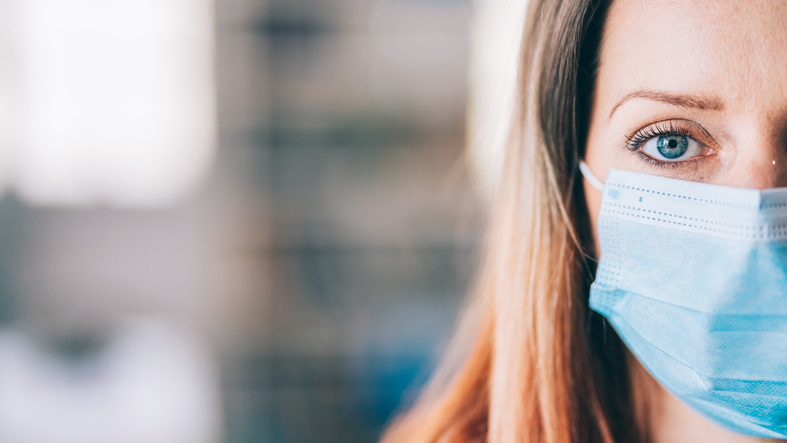Used Face Masks Pose Microplastics Risk
16 aoû 2021

Scientists warn that disposable face masks could be significant sources of microplastics into the environment, highlighting an urgent need for improved disposal strategies.
The outbreak of COVID–19, the disease caused by SARS–CoV-2, has put healthcare systems and economies under enormous pressure around the world. At the end of 2020, the novel coronavirus had infected over 82 million confirmed cases and killed more than 1.8 million people worldwide.
Since the start of the pandemic, the global consumption of disposable face masks has soared due to the evidence of their role in preventing the spread of infection. However, as these products are made of plastic nonwoven fabrics, their inappropriate disposal could be a potential source of microplastics released into the environment.
Understanding the amount and type of microplastics released from disposable face masks will help inform policies around their usage and disposal – helping to protect the environment from the potentially damaging effects of these microscopic pollutants.
Testing Disposable Face Masks
In a new study, published in Environmental Pollution, researchers evaluate the ability of new and used disposable face masks to release microplastics into water.1
The team tested 18 different brands of disposable face masks, including surgical masks, normal DFMs, and respirator masks – and new and used products. After shaking each mask in deionised water for 24 hours, they filtered the water through a cellulose membrane which they then dried and examined under a microscope. They quantified particles based on their shape, colour, and size – and identified the types of polymer in typical specimens using Raman spectroscopy.
The researchers used ultrapure water generated by an ELGA PURELAB® water purification system to avoid introducing contaminants during the experimental process.
Usage Promotes the Release of Microplastics
For all types of disposable face masks, the microplastic release capacity was 183.00 ± 78.42 per piece for the new masks – increasing to 1246.62 ± 403.50 per piece for used masks. This represents an increase from 6.0 to 8.1 times the number of microplastics released from used masks compared with new ones.
The most abundant type of microplastics were medium-sized (100–500 µm) transparent polypropylene fibres originating from the nonwoven fabrics.
These results suggest that, without effective disposal, used disposable face masks could be a critical source of microplastic pollution in the environment. This was not only because of the large number of fibres carried by the masks but also due to the process of usage, which further promotes the production and release of microplastics.
Better Disposal Strategies are Critical
This study highlights the need for the introduction of enhanced policies to ensure the effective disposal of face masks – particularly as the increased consumption of these products is predicted to continue over the next few years.
Potential measures could include educating and informing the public about how to use and discard disposable face masks appropriately and providing centralised disposal options. These steps could help reduce the legacy of microplastic pollution on the environment from the COVID–19 pandemic.
Why Choose ELGA LabWater?
ELGA LabWater has been a trusted name in pure and ultrapure water since 1937. We believe in giving you choice in how you use our water purification solutions, supported by excellent service and support.
Reference:
- Chen X., et al. Used disposable face masks are significant sources of microplastics to environment. Environ Pollut (2021):285:1117485. doi: 10.1016/j.envpol.2021.117485
Dr Alison Halliday
After completing an undergraduate degree in Biochemistry & Genetics at Sheffield University, Alison was awarded a PhD in Human Molecular Genetics at the University of Newcastle. She carried out five years as a Senior Postdoctoral Research Fellow at UCL, investigating the genes involved in childhood obesity syndrome. Moving into science communications, she spent ten years at Cancer Research UK engaging the public about the charity’s work. She now specialises in writing about research across the life sciences, medicine and health.
